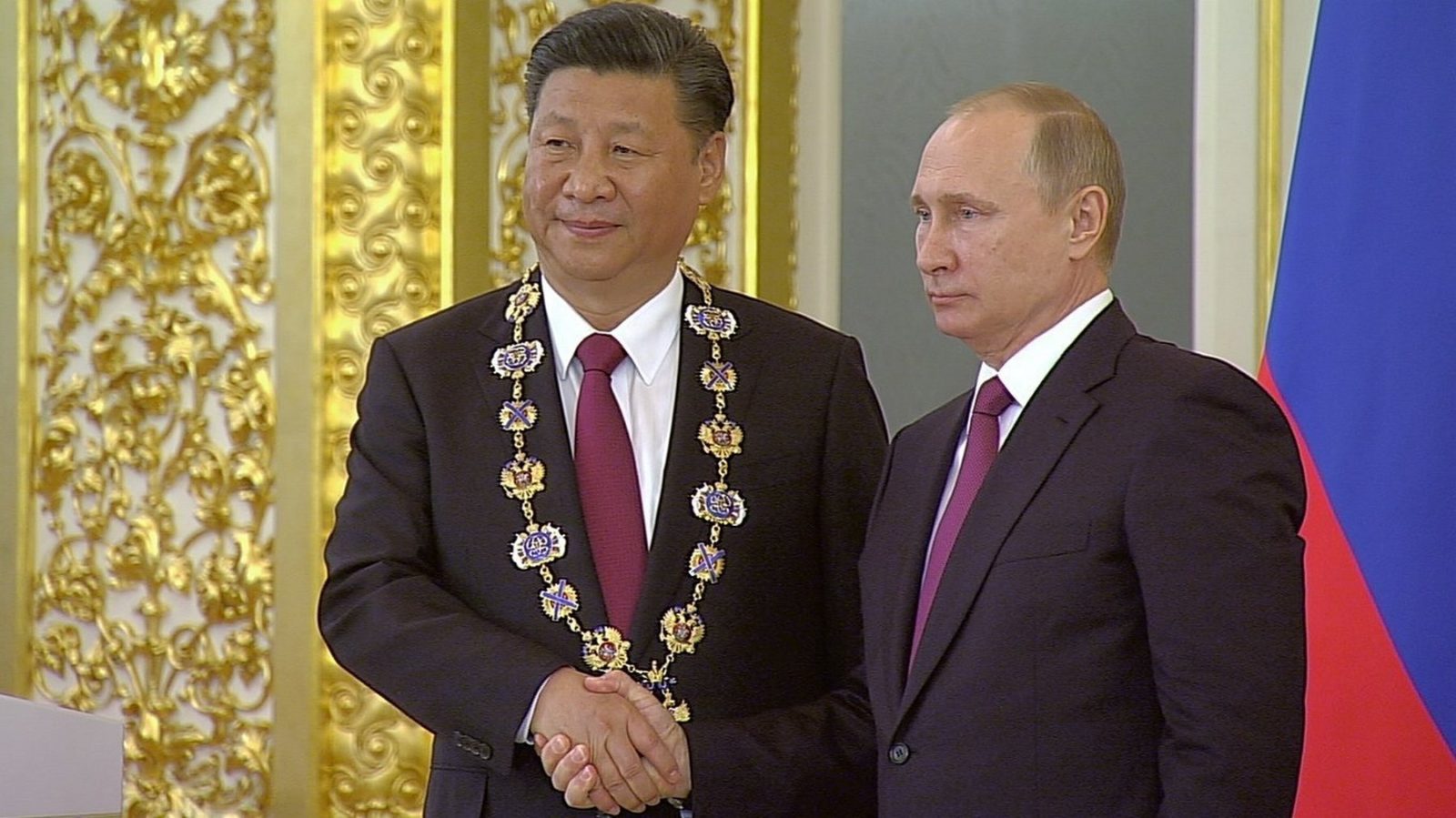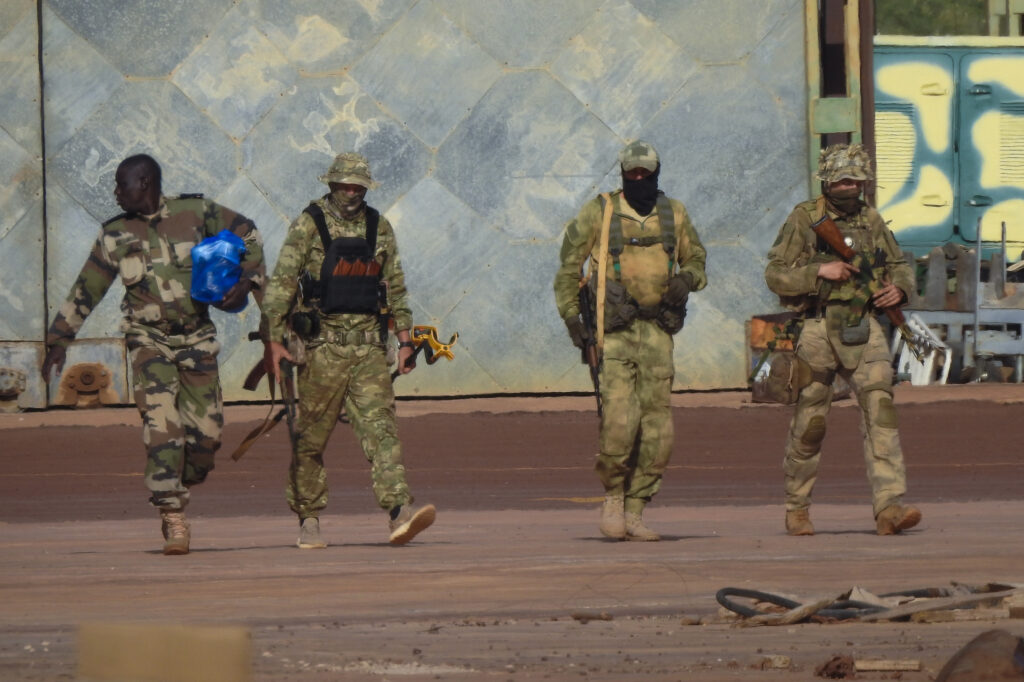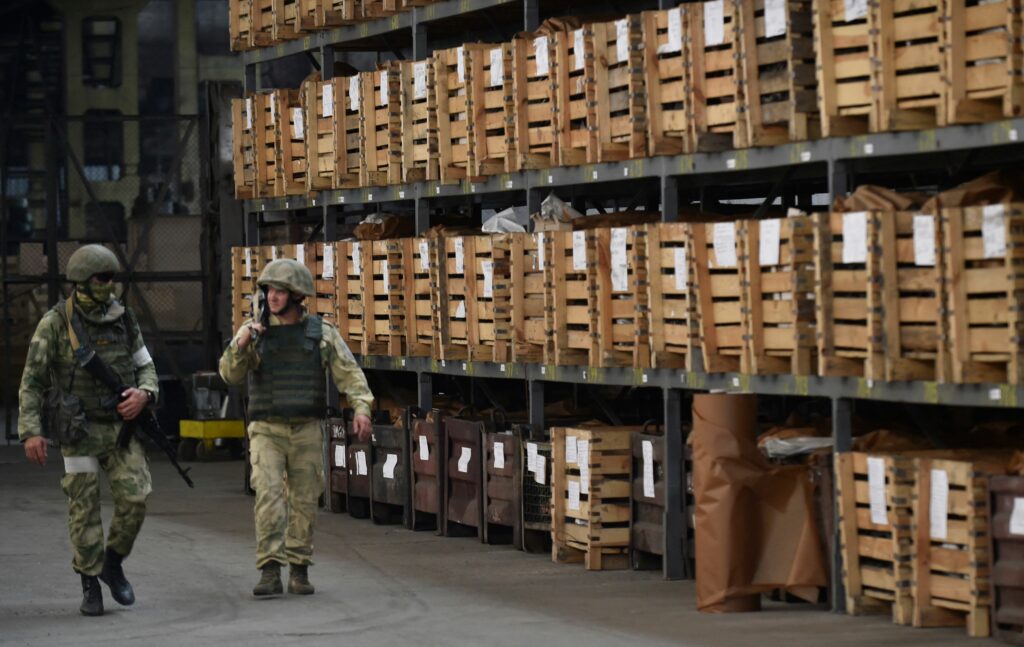This September, Vladimir Putin’s speech at the Vostok-2018 military exercises was translated into Chinese in real time. Tuning in were 3,200 Chinese military personnel. They had all been invited to join this year’s exercises, which were held as usual in Russia’s eastern territory. The inclusion of China this time round contrasted sharply with previous Vostok exercises, which had been deliberately drawn up in part as a show of strength to forestall any potential Chinese military activity on Russian soil.
Yet the inclusion of Chinese forces was hardly surprising given the tense international climate. Vostok-2018 took place as Beijing and Moscow faced serious and lasting tensions with Washington. Although the scale and nature of the problems with Washington differs drastically for both nations, it has become a Western media trope to focus on the prospects of a proto-military alliance between the Russia an China. Certainly the background of friction with the United States provides an impulse for a marriage of convenience of some sort or other. Yet in China, it appears that can only go so far. Officials and experts remain unprepared and unwilling to cultivate a fully fledged alliance with Russia.
China’s Hesitation
Chinese media responded to Vostok-2018 without strong emotion. Leading news agencies and newspapers noted the fact of the exercise taking place; but much more attention was paid to the visit of Chairman Xi Jinping to the Eastern Economic Forum, which coincided with the maneuvers. This made it possible to praise the Russian-Chinese «comprehensive strategic partnership» in the usual sweeping but streamlined manner, all without undue attention to the military aspects.
If the Chinese media did write about Vostok-2018, most articles played down the intensity of discussions in the Western media about the prospects of China’s alliance with Russia; most reports kept a safe distance from hinting at a military alliance. All major newspapers and news agencies of the People’s Republic of China unequivocally stressed that Moscow and Beijing are not striving for an alliance. The common refrain was that this was just to strengthen mutual trust via joint exercises. Indicative in this case is the reaction of the newspaper Global Times (GT), the main mouthpiece of Beijing’s nationalist rhetoric, which caters to English-speaking audiences around the world. GT usually does not skimp on loud statements about China’s international agenda, especially when it comes to the country’s military capabilities. But GT covered the Russian-Chinese military maneuvers with caution — delicately selecting relevant comments of foreign affairs experts. Expert articles on the same topic echoed the official narrative and talked about why neither China nor Russia needed a military alliance.
It seems that the Chinese calculations come to a clear deficit: Political points brought by rapprochement with Russia in the international arena do not pay back the risks that actively joining Russia’s confrontation with the West creates.
Russian Rapprochement is Not a Hot Topic
In China’s international affairs community, Russia-China relations are far from being the «hottest» of topics right now. The problems and prospects of rapprochement between Moscow and Beijing is far lower down the list compared to the trade war between China and the United States, for instance, or the North Korean nuclear problem.
Most scientific publications on cooperation between Russia and China fit into the framework of broader and more popular narratives of Chinese academia. People write and talk about Russia when discussing the development of the «Belt and Road» initiative or the «Community of shared future for mankind». All these are products of Beijing’s propaganda and the results of the Chinese leader’s own efforts. Russia is not considered a central subject of those studies.
The priorities of the researchers in this case are clear. The state is actively present in the Chinese academic environment and funds research activities in various fields — from rocket science to political science (in total, this takes 2.06% of the country’s GDP). When it comes to the social sciences, the rule applies that «whoever pays the piper calls the tune.» Thus a major part of publications on international relations use predetermined angles and fixed positive attitudes. This can give rise to comical situations. The probability of receiving state money for research on Central Asia and Russia, for instance, might well double if the title of the project refers to the initiative «Belt and Road».
An expertise with an eye specifically on Russia in China is a rather niche thing. The circle of Russian experts is small. All are concentrated in several research centers. These people began their academic career during the Soviet-Chinese split, when relations between Beijing and Moscow developed much less harmoniously than they do now, which made it a much more «relevant» topic for study.
The most serious Russian studies are done in the centers at the Chinese Academy of Social Sciences (CASS) in Beijing, as well as at Fudan University in Shanghai. There is a small staff of Russia scientists there. But they are broad generalists. Each tend to flit between everything from the analysis of the October Revolution and the geography of the Russian Empire, to the problems of the «Dutch disease» of the Russian economy and the «model of democracy in Putin’s Russia.» Russia studies centers are actively supported by CASS and the Ministry of Education of China, and their experts are on high demand for a broad range of purposes — not only in China but also in the United States and Russia (the main partners in Russia are the Russian Council on International Affairs (RIAC) and the Valdai Club).
Close ties with government agencies set the tone for the speeches of Chinese experts on Russia: they often agree with Beijing’s official position on all sensitive issues. Academic interest in Russia is determined by the priorities of political and economic relations between Moscow and Beijing. A lot is written about the Russian energy sector, the Shanghai Cooperation Organization (SCO) and the BRICS, in which Russia acts as a relatively equal partner of China.
So far, the structure of economic ties between Russia and China and the isolated position of Moscow on the international stage do not give grounds for research on a wider range of issues.
Cultivating an Understanding of Russia
Interest in Russia in the academic environment is dictated by Beijing’s foreign policy priorities, which also affects the tenor of how young Russia scholars get trained. Among Chinese students, this specialty lags far behind Korean studies or American studies. There are programs in Russia studies at 152 universities in China (there are about 3000 universities in total). These are mainly universities of the largest cities of the «first echelon» (Beijing, Shanghai, Tianjin), as well as the provincial centers of northeastern China bordering on Russia. It is there that students most often choose to pass the Russian language as the first foreign language in the entrance examinations to the university.
At Beijing University, the best university in China, there are not very many Russia students. This year the faculty of foreign languages recruited a group of only seven people. Although, in fairness, admission to a specialty for the study of Germany, Spain or France are even less — these groups consist of 3−4 students. But the English group consists of 17 people.
There is a little more interest in learning Russian at the Beijing Institute of Foreign Languages (analogous to the Russian Moscow State Linguistic University): 10% of freshman students will study Russian language there.
The demand for learning the Russian language and studying Russia in China is low but steady. Russia studies centers receive generous state funding and, despite being niche, even manage to maintain a momentum stretching across generations. Some topics related to the Russian-Chinese rapprochement sometimes do not go via filter of Beijing officialdom — but the official prerogatives are never too far from sight.
In Russia, China became the issue of considerable interest only since the beginning of the discussion about the «pivot to the East». At about the same time, the problems of domestic sinology resurfaced — for years this discipline had suffered from a lack of money, a lack of government support and an outflow of specialists.
Now government departments and even some Russian state-owned companies are frantically trying to build up a staff of sinologists in order to at least somehow establish relations with the country’s first trading partner, at least while the West is still introducing regular bouts of sanctions.
So, the prospects of the Russia-China alliance are likely to remain at the level of newspaper headlines. But if Moscow wants to achieve serious results from cooperation with Beijing, it may be worth paying more attention to its own internal expertise on China, as well as keeping tabs on how China’s experts actually view their country’s relations with Russia.










